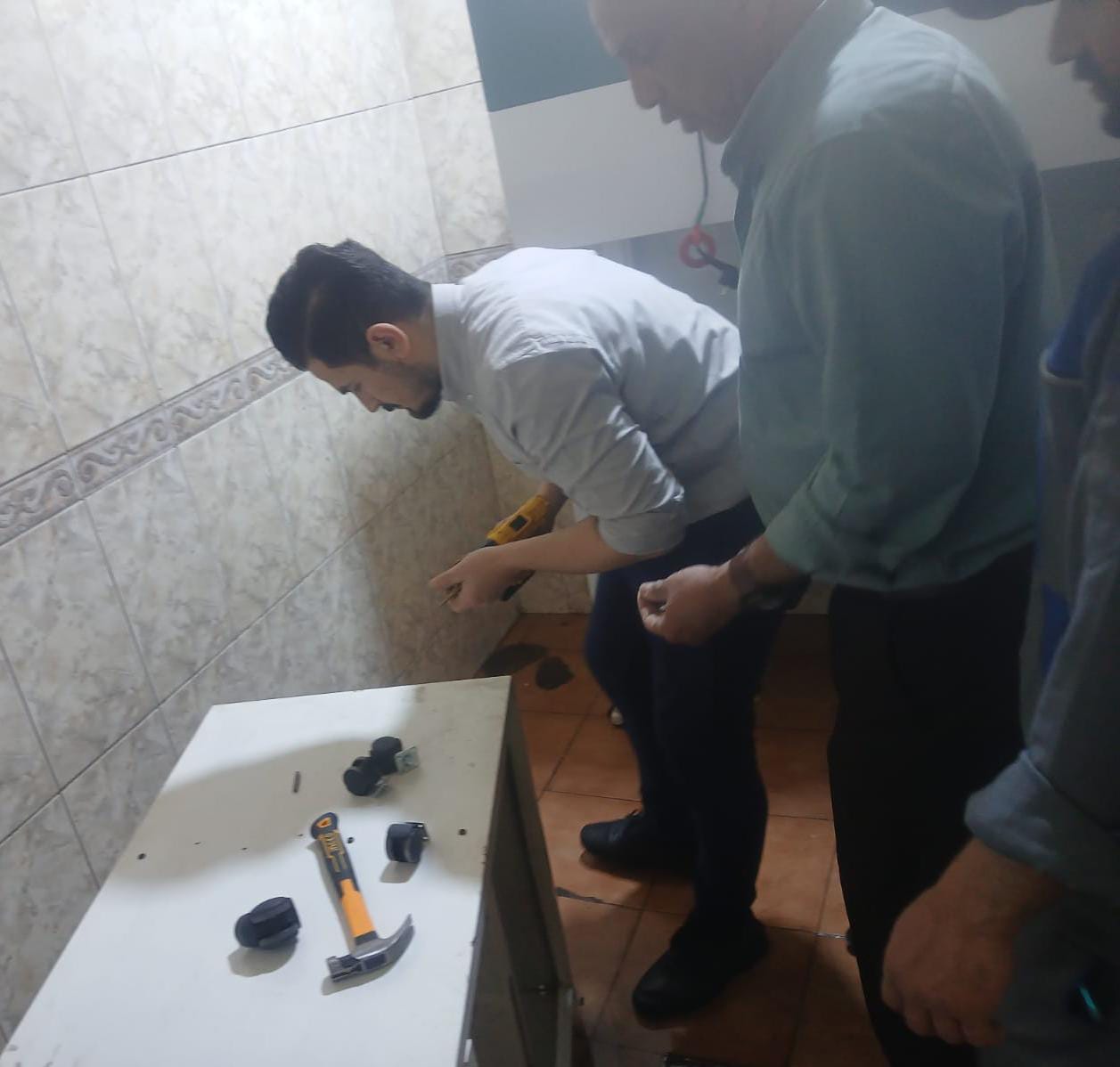تأهيل المختبرات وأستحداث مختبر المواد الحيوية
عدد الزيارات: 20484914 مشاهدة
بواسطة: قسم هندسة الطب الحياتي
تاريخ النشر: 2025-03-20
اخر تصفح: 2025-04-05

تم في قسم هندسة الطب الحياتي- كلية الهندسة في جامعة النهرين وفي مبنى مختبرات القسم وبأشراف مباشر من السيدة رئيس قسم هندسة الطب الحياتي الأستاذ المساعد الدكتورة أنس قصي هاشم والمدرس المساعد حمزة عباس فاضل والمهندس الأقدم نادية احمد محمد والفني عضيد محمد علوان تنظيم وتأهيل وتخصيص جزءاً محدداً ليكون مختبراً للمواد الحيوية لطلبة الدراسات الأولية والعليا حيث ان مختبر المواد الحيوية يمثل بيئة بحثية وتعليمية ذات أهمية كبيرة تُعنى بدراسة المواد المستخدمة في التطبيقات الطبية، مثل الغرسات، والمواد المستخدمة في إصلاح الأنسجة وفي الأطراف الصناعية ويهدف المختبر إلى اختبار وتطوير المواد لضمان توافقها الحيوي وأدائها الوظيفي في جسم الإنسان. كذلك يتضمن تطوير بدائل عظمية وأسنان صناعية ودراسة تأثير المواد على الأنسجة الحية وتحسين أداء الغرسات الطبية مثل المفاصل الصناعية. بالأضافة الى إمكانية تصنيع مواد ذكية تتكيف مع الجسم البشري.
حيث قد تم صيانة بعض الأجهزة المتطلبة في مختبر المواد الحيوية والموجودة في مختبرات القسم مثل الفرن الحراري والحالة وبعض الأجهزة المختبرية الأخرى وتم وصيانتها وتنظيفها وترتيبها..ونأمل مستقبلاً ان نقوم بتوسعة هذا المختبر ليكون مختبراً مركزياً للمواد الحيوية لأقسام الكلية جميعها لتعزيز التعليم والتدريب ولأمكانية البحث والتطوير ولفسح المجال للتعاون مع القطاع الطبي وإيجاد حلول مبتكرة بالتعاون مع المستشفيات وشركات الأجهزة الطبية.
At the Department of Biomedical Engineering – College of Engineering – Al-Nahrain University, and in the department’s laboratory building, under the direct supervision of the Head of the Biomedical Engineering Department, Asst. Prof. Dr. Anas Qusay Hashem, Asst. Lecturer Hamza Abbas Fadhel, Senior Engineer Nadia Ahmed Mohammed, and Technician Ubaid Mohammed Alwan, a specific area has been organized, rehabilitated, and designated as a Biomaterials Laboratory for undergraduate and postgraduate students.
The Biomaterials Laboratory represents an important research and educational environment focused on the study of materials used in medical applications, such as implants, tissue repair materials, and prosthetics. The lab aims to test and develop materials to ensure their biocompatibility and functional performance in the human body.
It also involves the development of artificial bones and teeth, the study of material effects on living tissues, and the improvement of implant performance, such as artificial joints. Additionally, it includes the potential for developing smart materials that adapt to the human body.
Some essential devices required for the biomaterials lab — already available in the department’s labs — such as the thermal oven, the desiccator, and other laboratory instruments, have been repaired, cleaned, and arranged.
Looking ahead, we hope to expand this laboratory to become a central biomaterials lab for all departments within the College. This expansion would enhance education and training, enable research and development, and foster collaboration with the medical sector to create innovative solutions in partnership with hospitals and medical device companies.
